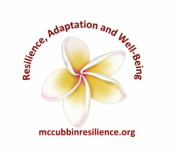The Kauai Longitudinal Study
This longitudinal study of a large multiracial cohort of children began at birth in 1955 with a focus on sex differences in vulnerability and resilience and a goal to identify protective factors within the children, the family, and the cultural and caregiving environment across the lifespan. Goals of the current follow-up phase are: (a) continuation of the study of 698 male and female individuals focusing on health and well-being as they enter their sixth decade and the aging process; (b) examination in greater depth of the processes involved in adaptation and resilience; (c) where needed, development and psychometric analysis of measures needed to advance the study of resilience of children and adults of this multiethnic population; (d) examination of historical trauma and its influence on development; and (e) identifying competencies and protective factors that evolved in the early years, middle years, and aging.
If you are part of the original KLS cohort, you may access the study using the following link:
https://louisvilleeducation.az1.qualtrics.com/jfe/form/SV_7X6X0c6Xr7nxWfj
The Resilience Sister Study
The purpose of this investigation is to examine stressors, adaptation, health, and well-being of adults of diverse backgrounds. This study is intended to run in parallel to current follow-up data collection procedures for the Kauai Longitudinal Study. This study will address the following questions: (a) What sorts of stressors and protective factors do individuals experience? (b) How do stressors impact health and well-being? (b) What protective factors predict higher scores in health and well-being? (c) Are there significant differences in patterns of stressors, protective factors and health and well-being by gender and race?
If you are interested in taking part in this study, you may access the survey using the following link:
https://survey.az1.qualtrics.com/jfe/form/SV_87JIwJ0XlqWAsSx
This longitudinal study of a large multiracial cohort of children began at birth in 1955 with a focus on sex differences in vulnerability and resilience and a goal to identify protective factors within the children, the family, and the cultural and caregiving environment across the lifespan. Goals of the current follow-up phase are: (a) continuation of the study of 698 male and female individuals focusing on health and well-being as they enter their sixth decade and the aging process; (b) examination in greater depth of the processes involved in adaptation and resilience; (c) where needed, development and psychometric analysis of measures needed to advance the study of resilience of children and adults of this multiethnic population; (d) examination of historical trauma and its influence on development; and (e) identifying competencies and protective factors that evolved in the early years, middle years, and aging.
If you are part of the original KLS cohort, you may access the study using the following link:
https://louisvilleeducation.az1.qualtrics.com/jfe/form/SV_7X6X0c6Xr7nxWfj
The Resilience Sister Study
The purpose of this investigation is to examine stressors, adaptation, health, and well-being of adults of diverse backgrounds. This study is intended to run in parallel to current follow-up data collection procedures for the Kauai Longitudinal Study. This study will address the following questions: (a) What sorts of stressors and protective factors do individuals experience? (b) How do stressors impact health and well-being? (b) What protective factors predict higher scores in health and well-being? (c) Are there significant differences in patterns of stressors, protective factors and health and well-being by gender and race?
If you are interested in taking part in this study, you may access the survey using the following link:
https://survey.az1.qualtrics.com/jfe/form/SV_87JIwJ0XlqWAsSx
